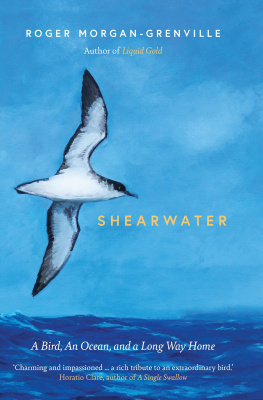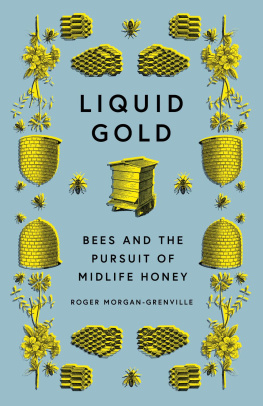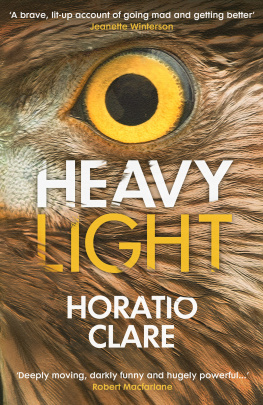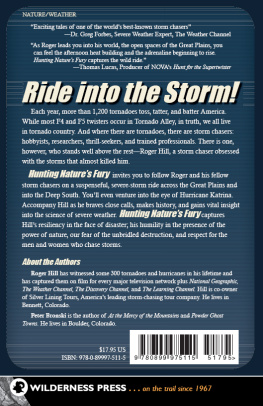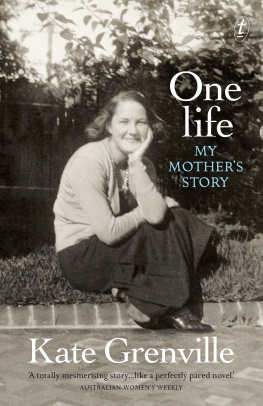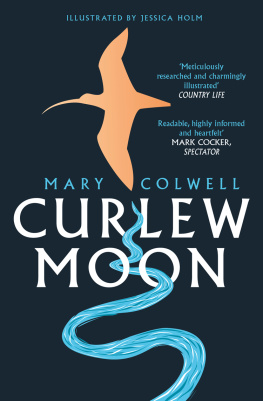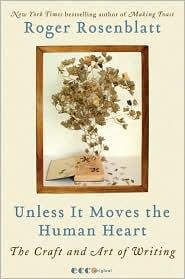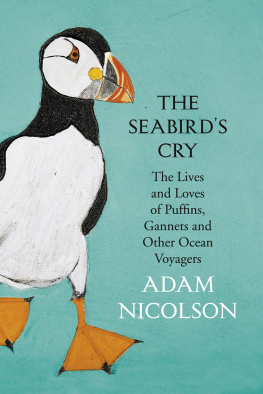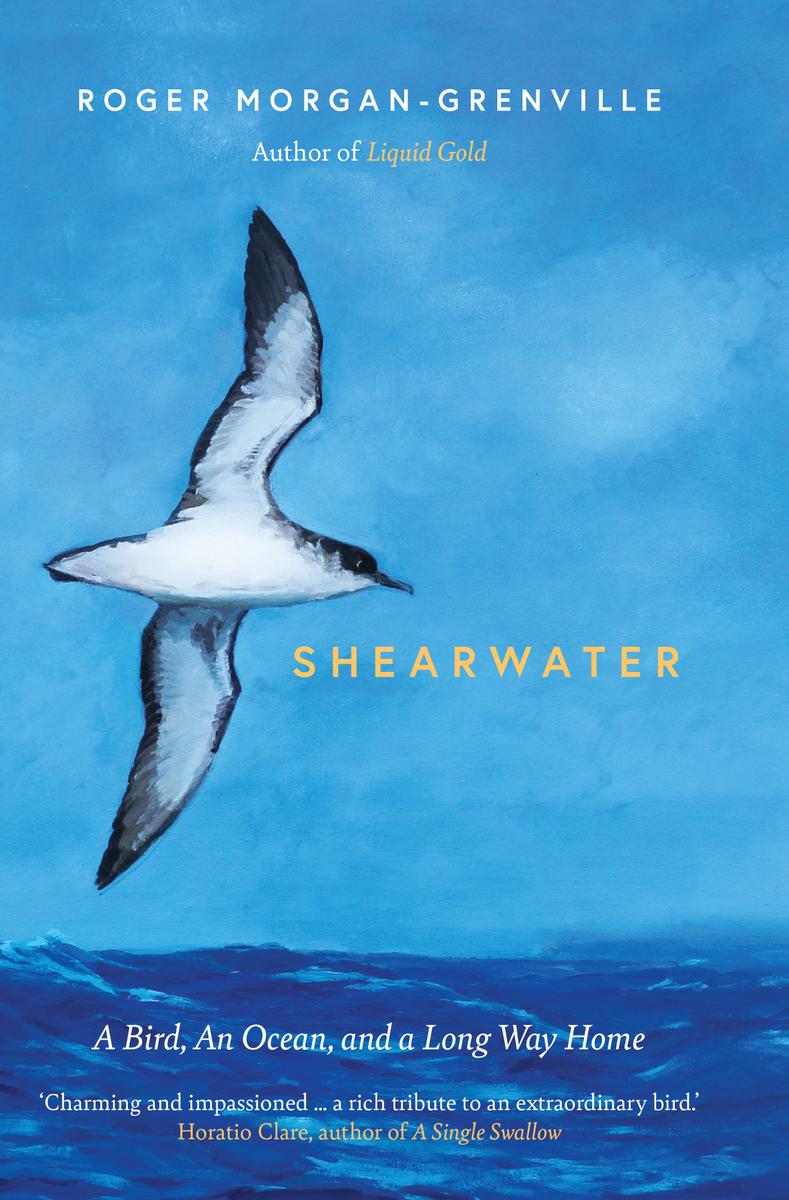
Praise for Shearwater
This charming and impassioned book meanders, shearwater-like, across a lifetime and a world, a rich tribute to an extraordinary bird drawn through tender memoir and dauntless travel.
H oratio C lare , author of A Single Swallow
This is wonderful: written with light and love. A tonic for these times.
S tephen R utt, author of The Seafarers: A Journey Among Birds
What I love about Roger Morgan-Grenvilles writing is the sheer humanness of it There are environmental issues and pure natural history in here, but the overall feel of the book is simple, humble wonder. Roger was lucky to have a grandmother who knew how to gently foster a live-wire mind. She loved birds, she loved Roger, and the combination guided him to her way of thinking as he grew older and this odyssey for shearwaters is the result. Bravo a truly lovely book.
M ary C olwell , author of Curlew Moon
Shearwater is a delightful and informative account of a lifelong passion for seabirds, as the author travels around the globe in pursuit of these enigmatic creatures.
S tephen M oss , naturalist and author of The Swallow: A Biography
A memoir lit by wry humour and vivid prose his evocation of the Hebrides is as true as the fresh-caught mackerel fried in oatmeal his grandmother used to cook for him.
B rian J ackman , author of Wild About Britain
Praise for Liquid Gold, by the same author
A great book. Painstakingly researched, but humorous, sensitive and full of wisdom. Im on the verge of getting some bees as a consequence of reading the book.
C hris S tewart , author of Driving Over Lemons
A light-hearted account of midlife, a yearning for adventure, the plight of bees, the quest for liquid gold and, above all, friendship.
Sunday Telegraph
Liquid Gold is a book that ignites joy and warmth through a layered and honest appraisal of bee-keeping. Roger Morgan-Grenville deftly brings to the fore the fascinating life of bees but he also presents in touching and amusing anecdotes the mind-bending complexities and frustrations of getting honey from them. But like any well-told story from time immemorial, he weaves throughout a silken thread, a personal narrative that is at once self-effacing, honest and very human. In this book you will not only meet the wonder of bees but the human behind the words.
M ary C olwell , author of Curlew Moon
Beekeeping builds from lark to revelation in this carefully observed story of midlife friendship. Filled with humour and surprising insight, Liquid Gold is as richly rewarding as its namesake. Highly recommended.
T hor H anson , author of Buzz: The Nature and Necessityof Bees
Behind the self-deprecating humour, Morgan-Grenvilles childlike passion for beekeeping lights up every page. His bees are a conduit to a connection with nature that lends fresh meaning to his life. His bee-keeping, meanwhile, proves both a means of iii escape from the grim state of the world and a positive way of doing something about it. We could probably all do with some of that.
D ixe W ills , BBC Countryfile Magazine
Peppered with fascinating facts about bees, Liquid Gold is a compelling and entertaining insight into the life of the beekeeper. But its much more than that. Its the story of a life at a crossroads when a series of random events sets the author off on a different, and more satisfying, path. Its a tale of friendship and fulfilment, stings and setbacks, successes and failures and finding meaning in midlife.
WI Life
[A] delightfully told story Wryly humorous with fascinating facts about bees, it charts the authors own mid-life story and the joys of making discoveries.
Choice magazine
The reader will learn plenty about bees and beekeeping from this book, although it is about as far from a manual as possible. Liquid Gold is a well observed delve into the hobbyists desire to find what is important in life, no matter their age or preparedness.
The Irish News
[A] delightful exploration of the world of bees and their honey a hymn to the life-enhancing connection with the natural world that helped Morgan-Grenville reconcile himself to the fading of the light that is middle age.
Country & Town House magazine
Both humorous and emotionally affecting Morgan-Grenvilles wry and thoughtful tale demonstrates why an item many take for granted should, in fact, be regarded as liquid gold.
Publishers Weekly
CONTENTS
In memory of Elizabeth Freeman 19121986
Dedicated to the small army of scientists, zoologists, conservationists, policy-makers, wardens, charity workers and volunteers whose work helps to explain our wildlife to us, and ensures as best it can that it will still be there for our children and grandchildren to cherish.
A NOTE ON NAMES
Most of the names and places in this book are the real ones. Following seabirds is, however, generally a private activity, and I have occasionally protected the identities of the people I met on my travels by changing their names.
xiv
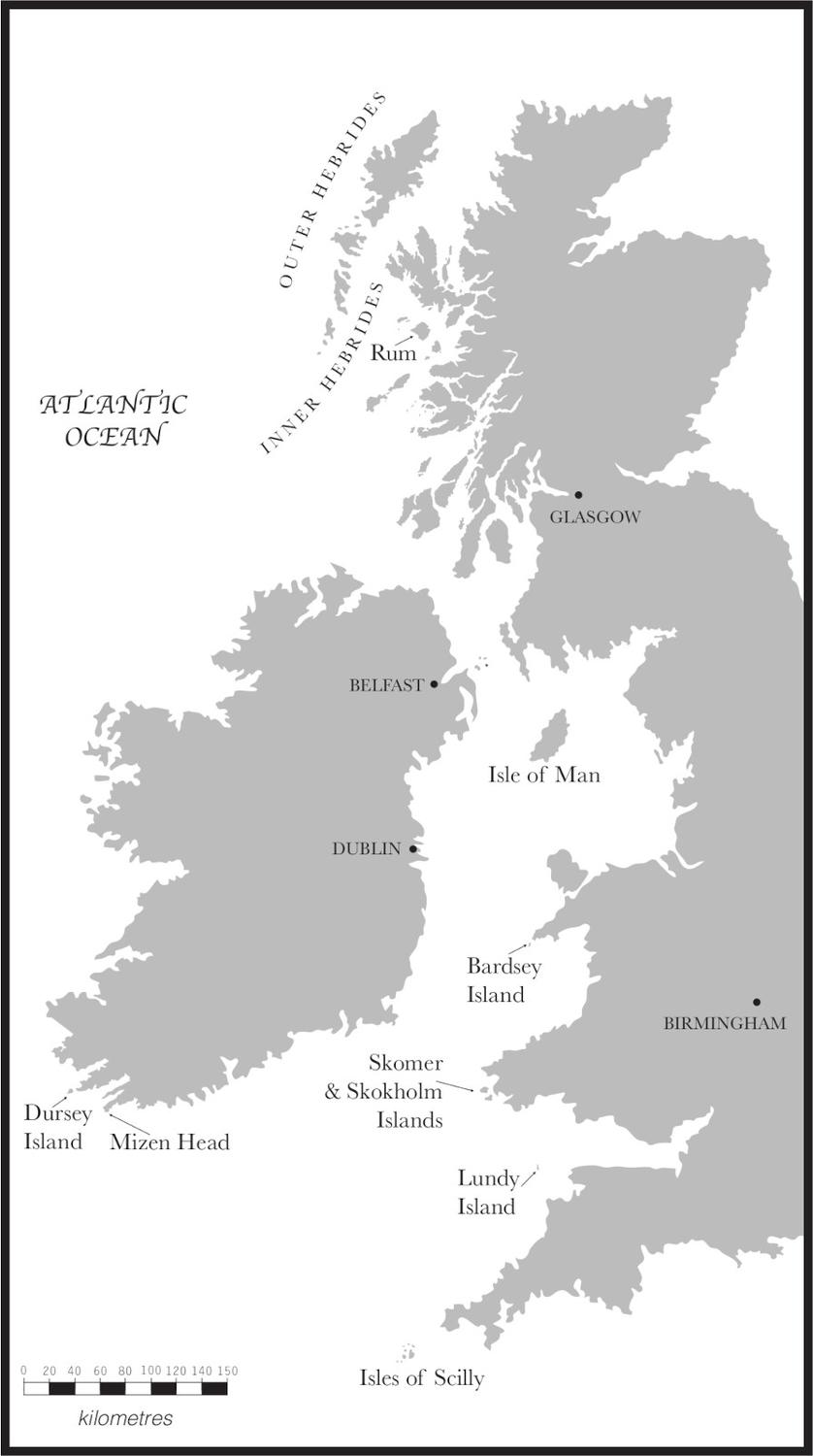
1. The western British Isles, showing main breeding sites (Chapter 4) and other places mentioned in the book.
xv
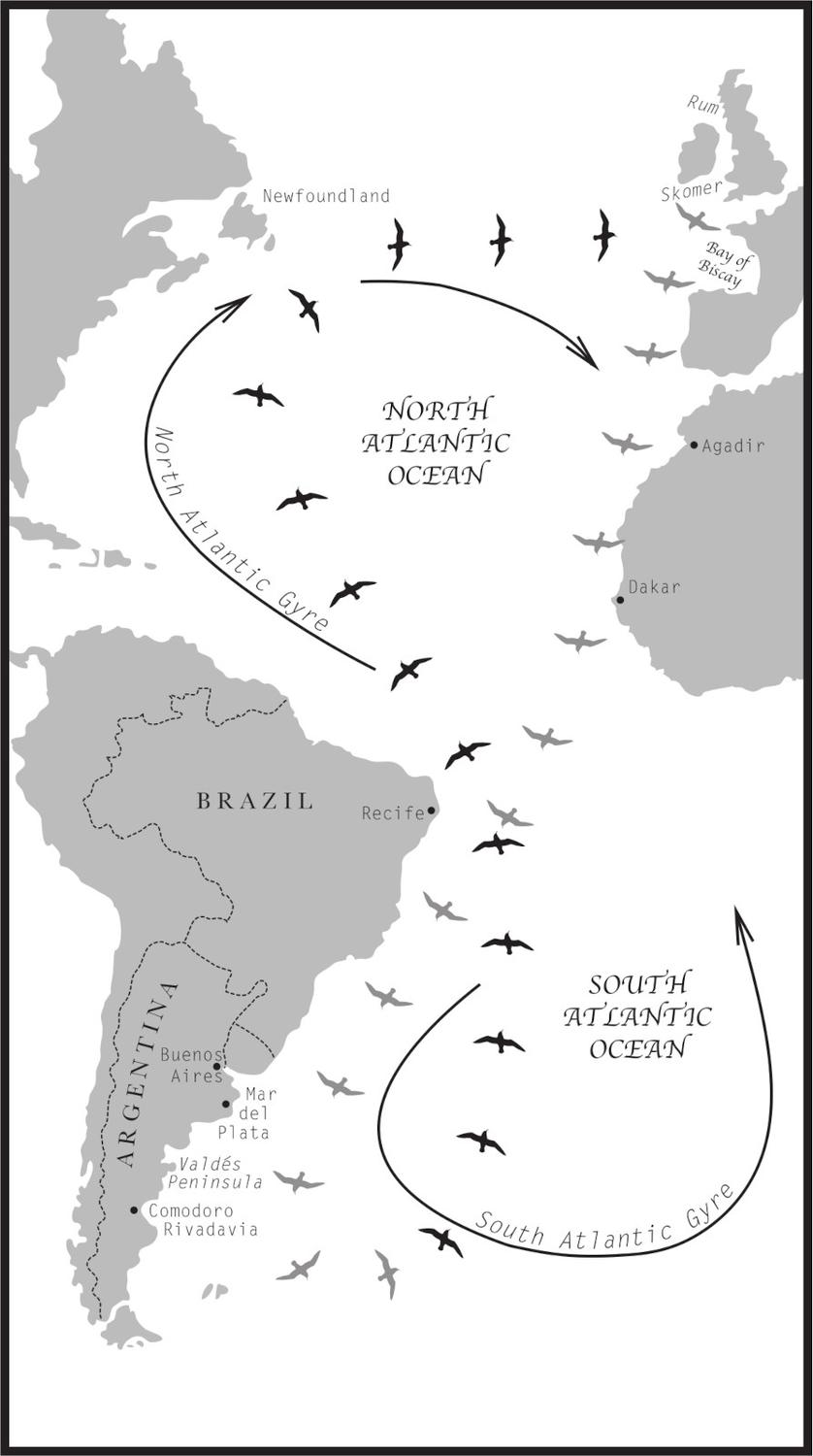
2. The Atlantic Ocean showing gyres and migration routes (Chapter 7).
xvi
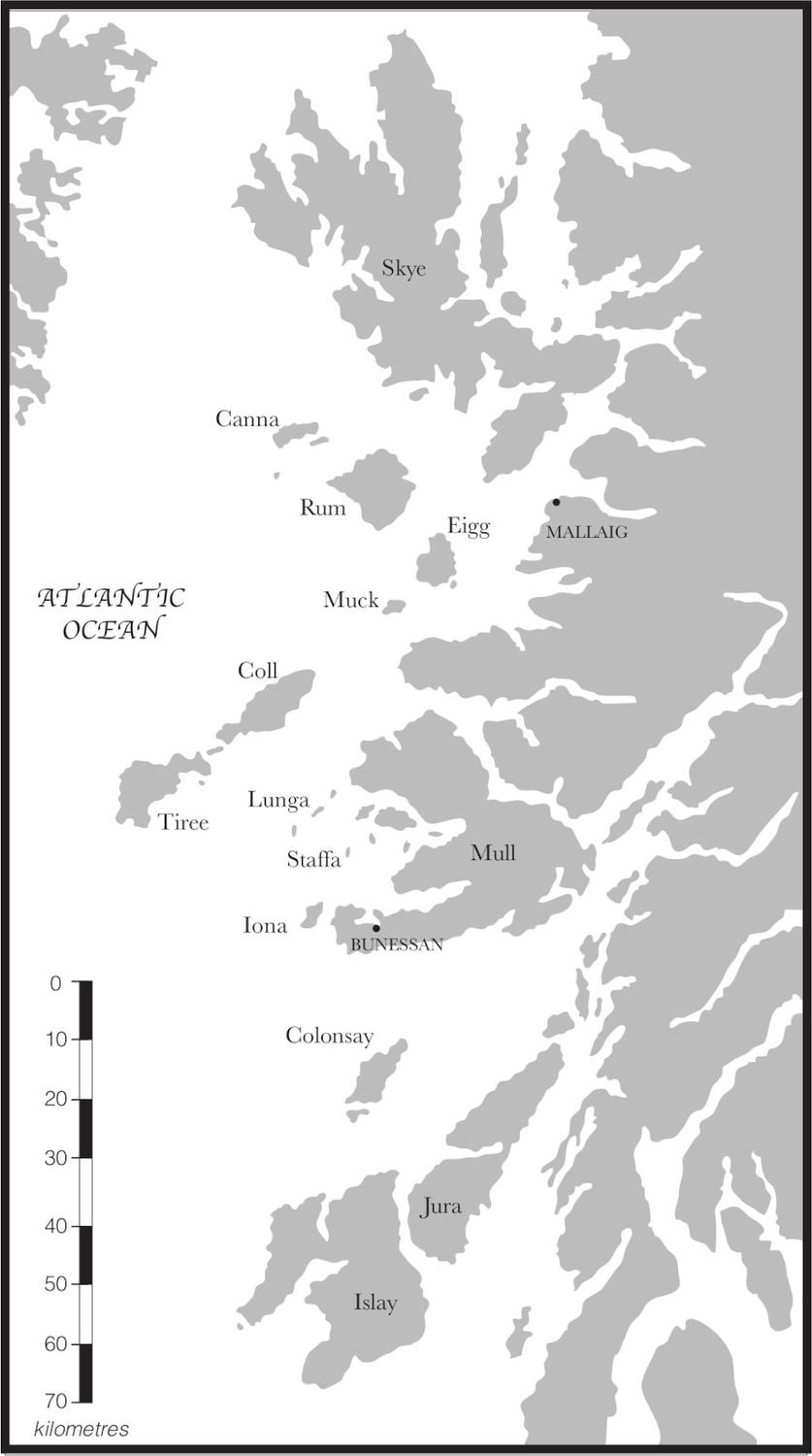
3. The Hebridean Small Islands (Chapter 11).
xvii
May 2004, Tsu City, Japan
From a certain point onward there is no longer any turning back. That is the point that must be reached.
F ranz K afka
A ll bird species have occasional vagrants, members of the clan who, for one reason or another, find themselves in entirely the wrong place.
It might be because of fog or a strong and relentless wind; it might be some fault in the birds navigational wiring, or that it simply found itself far out at sea, alighted on a passing ship and then ended up wherever the ship happened to be going.
The vagrants we tend to see in the British Isles are often blown over the 3,000-mile Atlantic Ocean by a prevailing gale, or pushed up from the Sahara on the forward edge of a sandstorm. Our most famous vagrant was probably Albert Ross, a black-browed albatross who kept his lonely vigil around Bass Rock in eastern Scotland on and off for 40 years from the mid-1960s, his romantic advances among the gannets constantly fated to refusal and failure. It wasnt the fact that he xviii was 6,000 miles away from the northern end of his range that was astonishing it was that he would have had to cross the equator and the tropics at some point to be here. Albatrosses need wind for their dynamic soaring flight and the tropics, as the Ancient Mariner found out to his cost, often dont have any.
One morning in mid-May 2004, a Japanese fisherman noticed a bird he didnt recognise just off the shoreline at Tsu City, a small industrial town a couple of hundred miles to the west of Tokyo. He was interested enough to bring it to the attention of one of Japans most dedicated seabird experts, Hiroyuki Tanoi, who quickly and positively identified it as a Manx shearwater, photographing it for good measure to convince any doubters.

